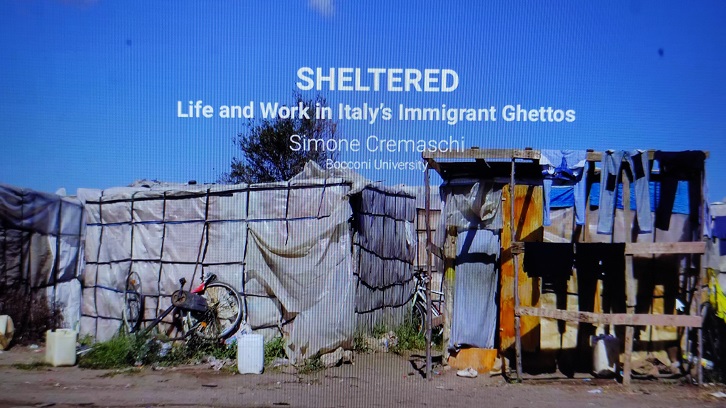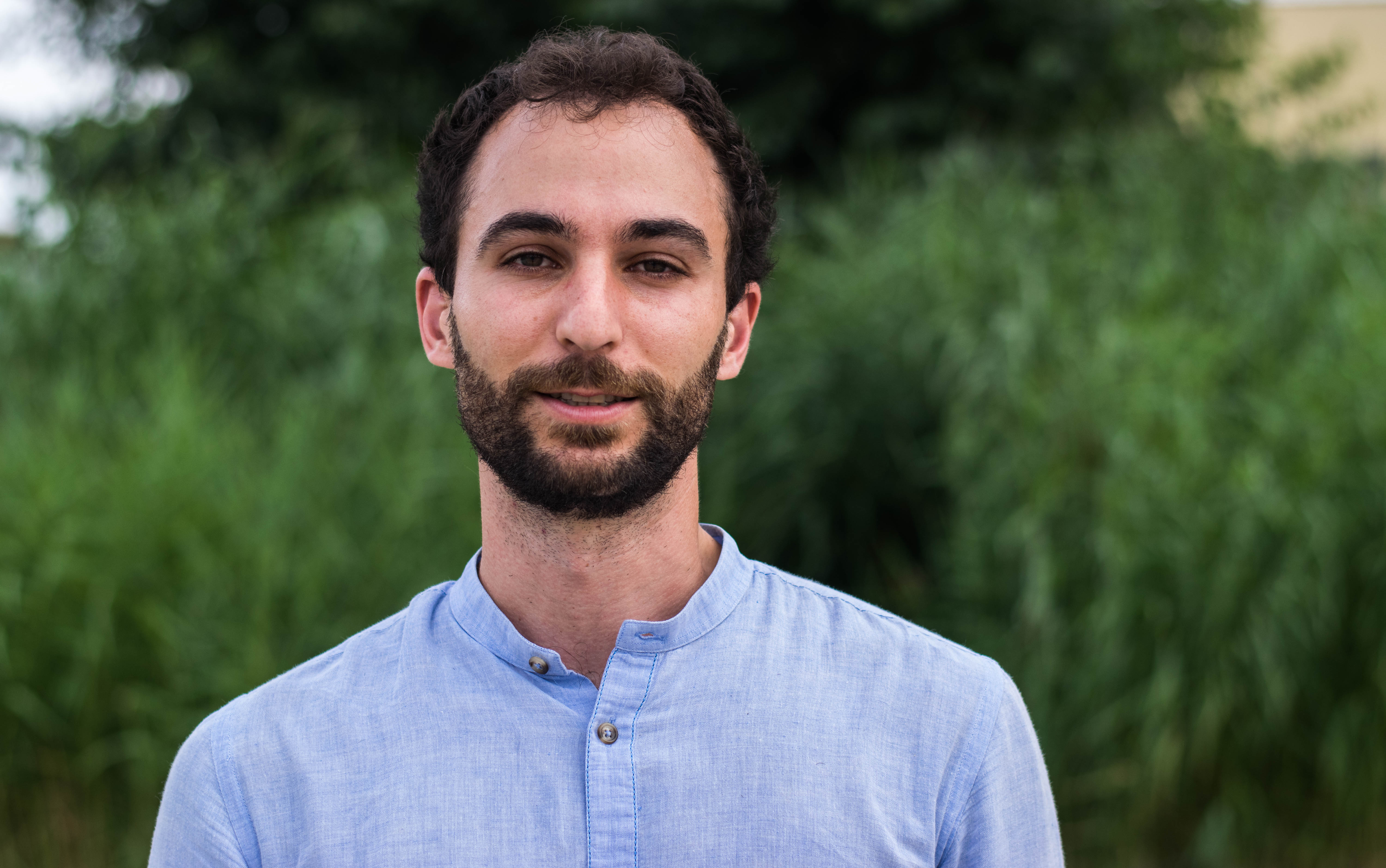This year’s Maria Baganha Award was one for the books! We had an incredible set of applicants captained by the winner, Simone Cremaschi, which was presented with the award at the 18th Annual Conference “Crossing Borders, Connecting Cultures” hosted by the University of Luxemborg.
The jury, led by Rosa Aparicio, spoke at the conference giving the deserved credit to Simone and his work which outshined that of the other applicants that we wish to thank also. Hereby you can find a summary of his dissertation together with a short bio. We are sure you’ll enjoy it!
Summary
Sheltered: Life and Work in Italy’s Immigrant Ghettos investigates how marginalized West African immigrants in Italy managed to create a parallel society among outcasts, which allows them to find shelter in self-built housing and survive on unregistered jobs in the harvest. Starting from the tomato fields of Foggia, Cremaschi traces how “the ghettos” have grown over forty years and spread all over the country, evolving from temporary shelters built by seasonal workers to permanent shantytowns housing thousands of dwellers. Drawing on an integrative multi-method design, including the analysis of ethnographic, interview, and survey data collected in eight informal settlements in five Italian provinces, his study unveils the micromechanisms that allow the ghettos to function while documenting the detrimental consequences of systemic exclusion on their denizens’ lives. The author debunks widely held beliefs about the ghettos as being the creation of coercive gangmasters (known in Italy as caporali) and demonstrates how these communities emerge through mutually beneficial exchanges, an underground economy, and extralegal governance. Zooming into the daily choices immigrants make to navigate marginalization, he illuminates their diverging tactics when searching for jobs and living accommodations. His analysis offers a fresh look over the role of gangmasters, unveiling their crucial role as brokers in a labor market plagued by structural deficiencies and unregistered work, detailing how workers’ choice to look for jobs through gangmasters or independently is the object of strategic decision-making and varies with individual characteristics, and documenting how gangmasters’ and workers’ bargaining power changes with external market conditions. Raising the alarm about the status of integration in Europe, the study reveals how the ghettos have become a fallback shelter for many. While most dwellers stay there for short periods and spend the rest of the year moving to precarious arrangements in town, striving to fulfill aspirations of social and economic integration, a sizeable group has withdrawn into the ghettos on a long-term basis. Their choice appears to arise from a process of “narrative adaptation”—impeded by constraints such as undocumented status and lack of supportive networks as well as by poor investment in host country human capital, they craft narratives giving value to their choice to stay put and give up hopes of integration in the outside world. In sum, the study uncovers how structural factors, individual choices, and interpersonal cooperation dynamics concur to reproducing one of the most extreme manifestations of immigrant segregation in Western countries.
Biography
Simone Cremaschi received his Ph.D. in Political and Social Sciences from the European University Institute in May 2020. He is now a Postdoctoral Researcher at Dondena Centre, Bocconi University. In his work, he uses ethnography and statistics to study the causes and consequences of socio-political marginalization. His research interests include migration and integration, housing and homelessness, informal institutions, trust and cooperation, and exclusionary politics. At Bocconi, he works on the ERC-funded research project LOSS, examining how economic hardship affects support for socially conservative political agendas. He holds a B.A. in Political Science from the University of Pavia and an M.Sc. in Economic and Social Sciences from Bocconi University. He has held visiting positions at the ETH Immigration Policy Lab (Zurich) and the WZB (Berlin) and has attended summer schools at Oxford University and the BIGSSS (Bremen). He has been an intern at the United Nations European Commission for Europe (UNECE) and a researcher at Fondazione Giangiacomo Feltrinelli. His research has received funding from Fondazione Roberto Franceschi, of whose scientific committee he is now a member.



